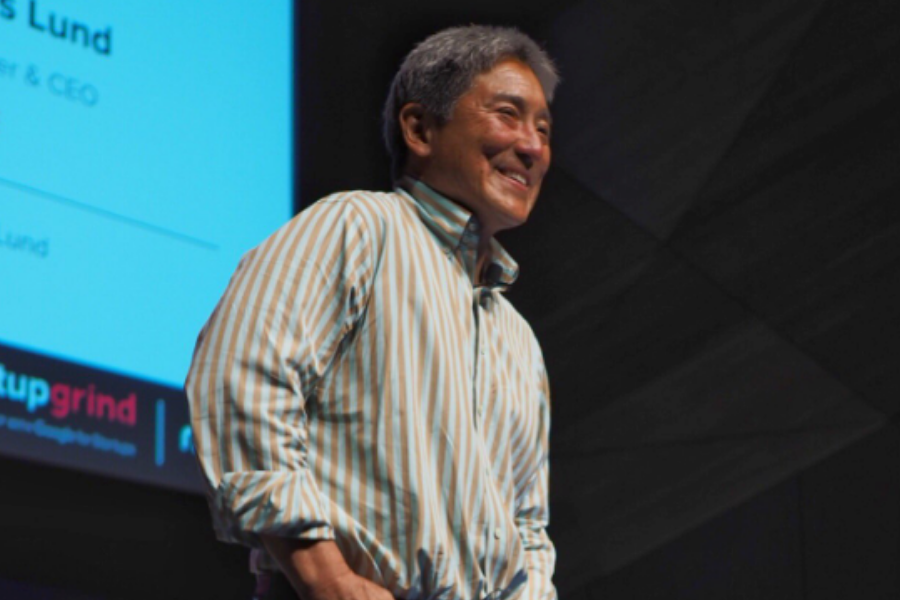Guy Kawasaki loves Australia; between the gun control, the fact we don’t have to show identification to take a domestic flight, and compulsory voting, he reckons it’s a pretty good place to be.
Of course, many a Silicon Valley luminary visiting Australia will say the same, but Kawasaki perhaps knows the country better than most: his son played semi-professional hockey for the Sydney Bears and Kawasaki himself is, of course, chief evangelist for local design unicorn Canva.
The role came to him through social media, after the Canva team noticed Kawasaki’s Twitter was littered with Canva graphics and decided to shoot their shot and tweet him to ask for a chat.
“I asked Peggy, the person helping me with my social media, and the person actually using Canva, ‘is this the company you keep talking about that makes great graphics? Should I help them?’ She said yes, and the rest is history.”
In Melbourne for Startup Grind Asia Pacific this week, Kawasaki said making the decision to invest in and work with Canva was easy, because after two stints as Apple’s chief evangelist in the 80s and 90s, he believes evangelism is actually very simple.
“I’ll tell you right now, the key to evangelism is to evangelise good stuff. It’s very easy to evangelise good stuff, it’s hard to evangelise crap,” he said.
This idea ties into the key message Kawasaki said he wanted to impart upon the crowd: that the good stuff can come from anywhere – after all, Canva was originally founded in Perth.
Lots of places around the world have Silicon Valley envy, thinking there’s “some kind of pixie dust and magic and unicorns there”, Kawasaki said, but that’s just not true.
“We just make more experiments than most people in most regions and what we do in Silicon Valley is throw a lot of stuff against the wall and some of it sticks, then we go up to the wall, paint the bull’s eye around that, and declare victory. You can always hit the target when you paint the target on after you see what sticks,” he said.
“The Canvas and Atlassians of the world are possible anywhere, you don’t need to be in Silicon Valley, and good people are good people no matter where they are. There’s nothing that magical about Silicon Valley.”
For those that might ask what the Australian startup community has going on, Kawasaki added, all you need to give are those two examples – just pretend to think long and hard before answering, as if there are so many examples you can think of that you don’t even know where to start.
The fake-it-til-you-make-it strategy worked for Apple during Kawasaki’s first stint at the company, when journalists and analysts would constantly ask if there were any Fortune 500 or Fortune 1000 companies using Macintosh.
“We would sit there and um and ah like, ‘god, there are so many examples, what should I tell this person?’ Finally, we would say, ‘the big accounting firm Peat Marwick is giving a Macintosh to every onsite auditor, and they’re going to use it to make their onsite audits more efficient,’” he said.
“Then they would say, ‘wow, that’s proof positive: if Peat Marwick, a financially conservative consulting and accounting company is using Macintosh it must be a business computer’…but at the time, Peat Marwick was the only large company that was buying Macintosh.
“The lesson of this story is: everybody needs a Peat Marwick, because it empowers everybody else.”
Image: Guy Kawasaki. Source: MYOB.




















Trending
Daily startup news and insights, delivered to your inbox.